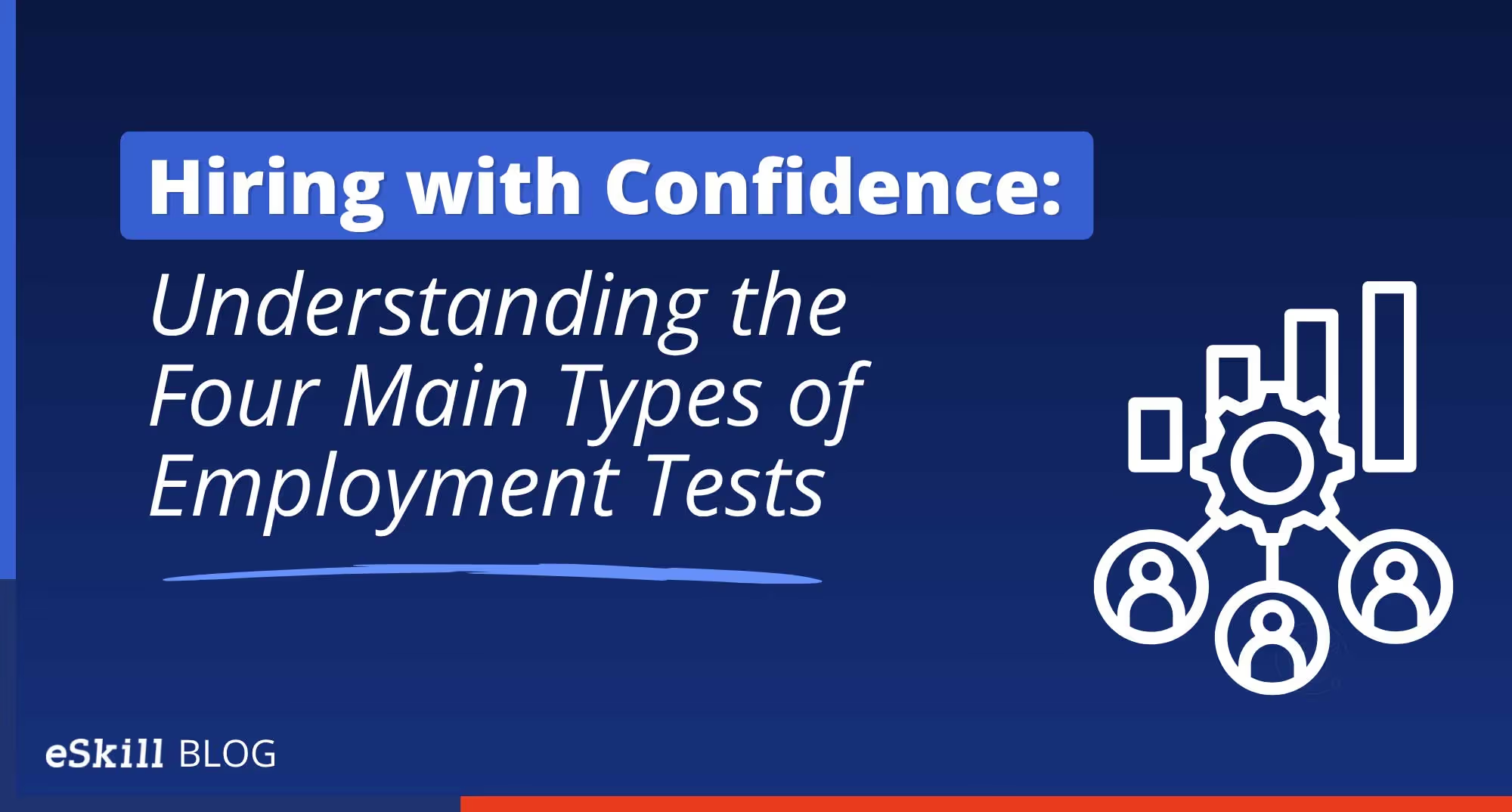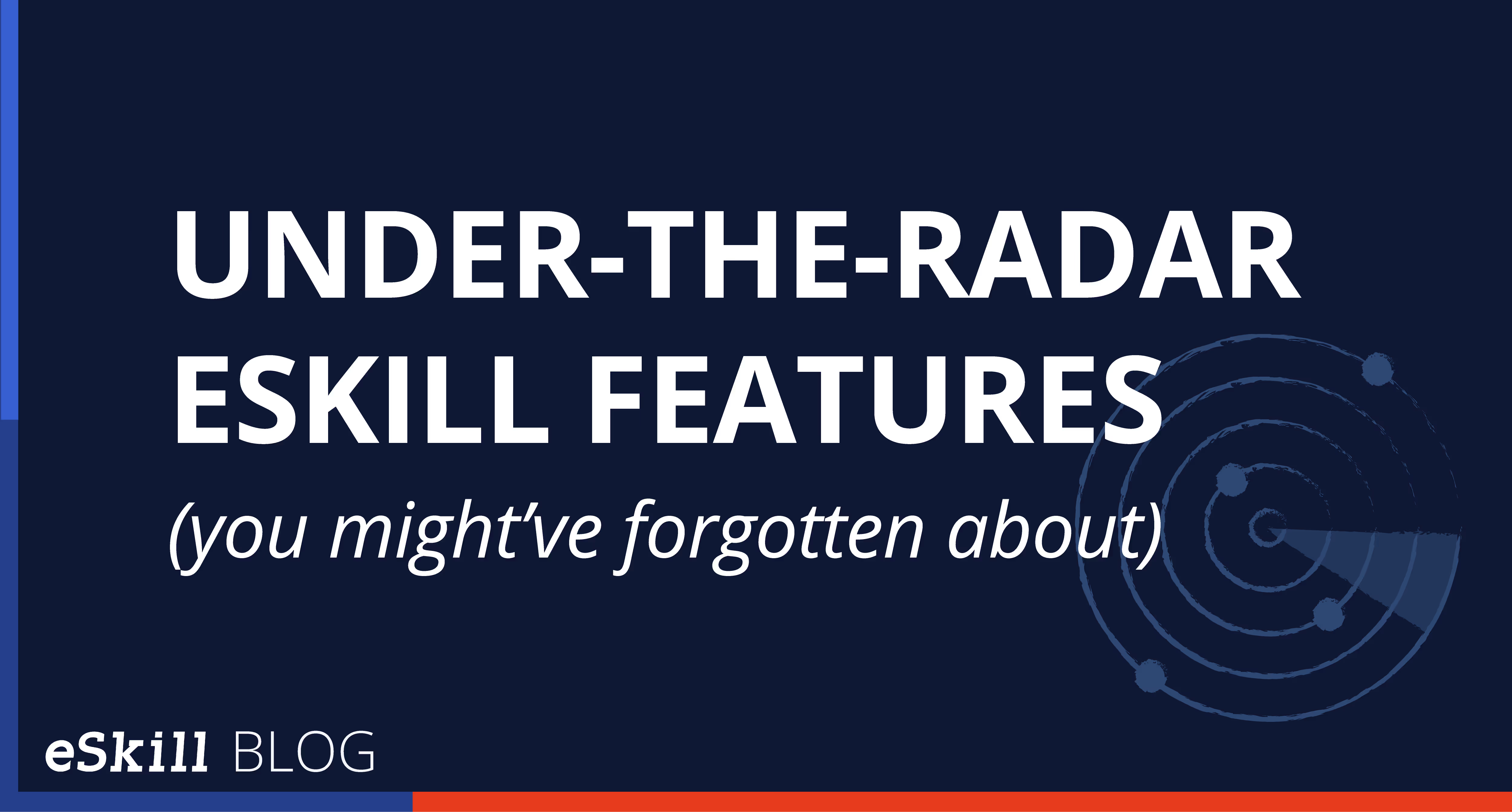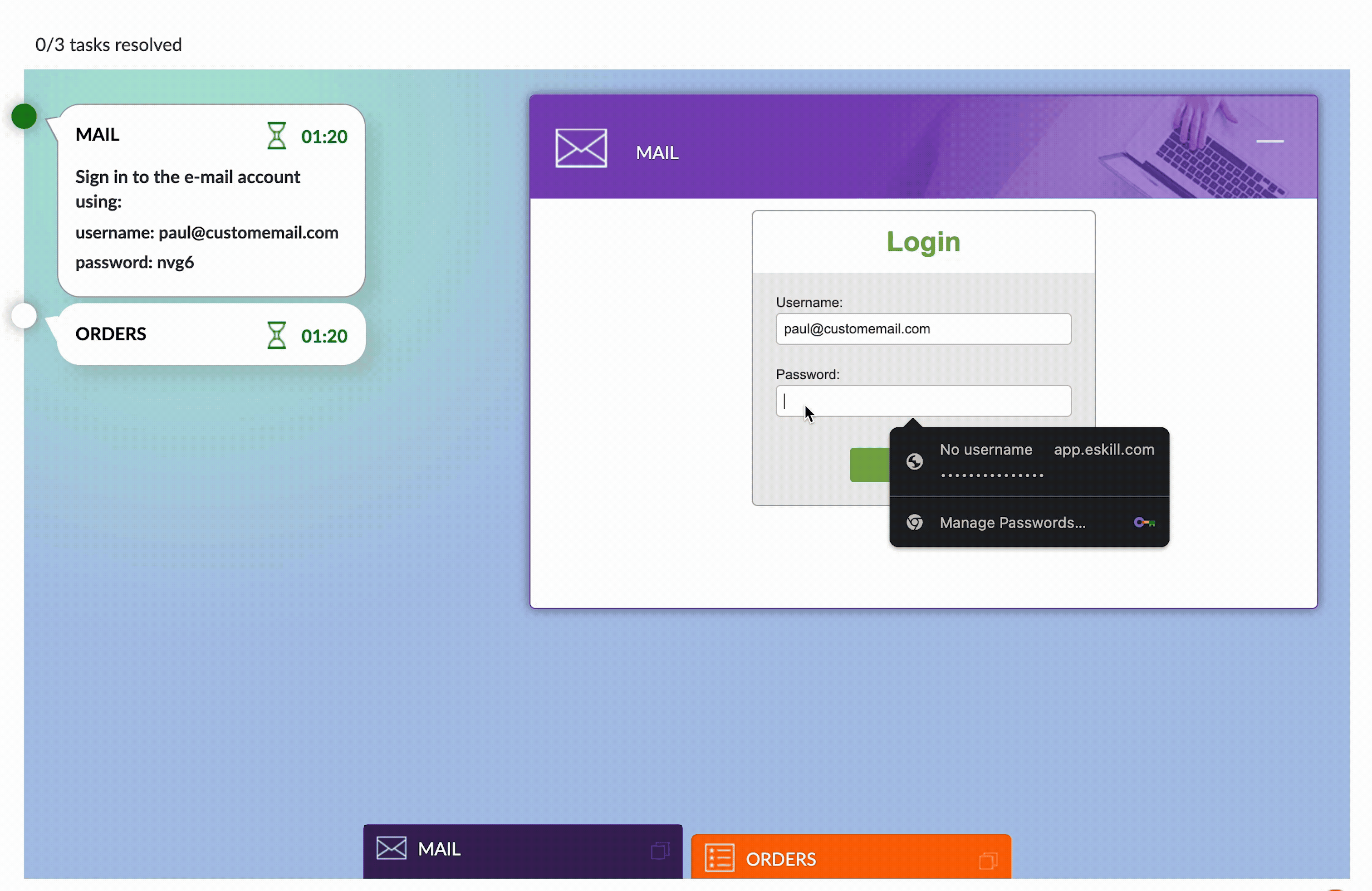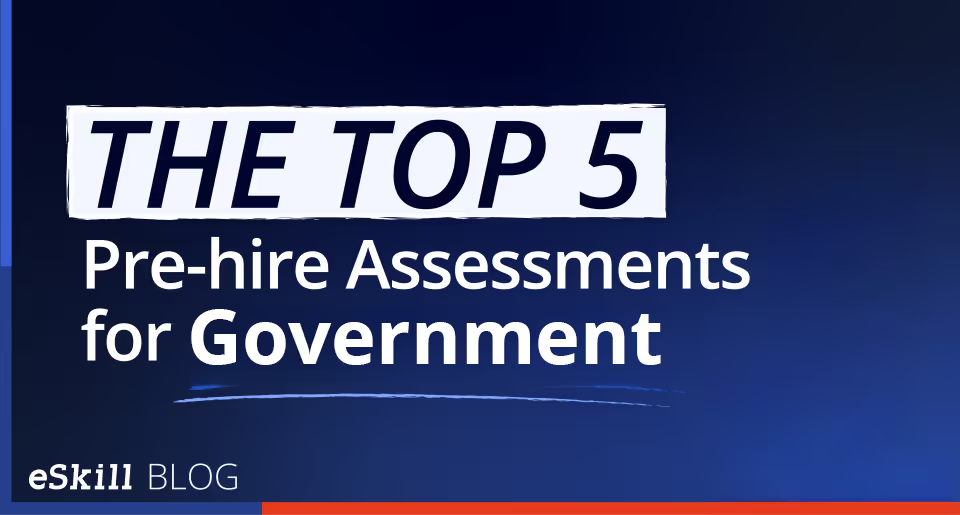As an HR professional, you aim to hire top candidates for all your open jobs. However, you have undoubtedly learned this is easier said than done-especially during these past few years.
Organizations are finding it challenging to recruit qualified candidates because there is a shortage of applicants with in-demand skills. Many companies’ hiring needs have changed because they have upgraded their technology or implemented digital transformation solutions. Many applicants’ skills have not kept pace with these changes, and the result is a sizable skills gap.
A Korn Ferry report shows a worldwide talent shortage of more than 85 million people, a number roughly equivalent to the population of Germany. The problem has become so serious that 71% of CEOs say a skills shortage will be their biggest business challenge for the foreseeable future. So, if you feel like you are searching for a needle in a haystack while hiring, you are not alone.
Many organizations have implemented a pre-hire assessment solution like the industry-leading eSkill Talent Assessment PlatformTM to make it easier to recruit top candidates.
How Many Types of Career Assessments Are There?
If you ask industry experts how many types of employment tests there are, you will hear different answers. Some insist there are 12 different employment tests and offer the following list:
- Skills Tests: Let you and your team confirm that an employee can do a job. For example, if you are hiring administrative assistants who must have excellent MS Word® and MS Excel® skills, your tests would include questions about Word and Excel features that are essential to the job.
- Cognitive Tests: Help you evaluate a candidate’s ability to think, reason, solve problems, and assimilate new material. They are essential when recruiting applicants for a position that requires fast thinking and good decision-making.
- Numerical Tests: Consist of multiple-choice, true-false, and simple select questions that help you analyze candidates’ critical thinking abilities and how well they can work with numerical data and manage it efficiently.
- Verbal Reasoning Tests: Require applicants to review several paragraphs of written text so you can measure their comprehension and reasoning and what they can conclude based on what they read.
- Logical Reasoning Tests: Typical questions show a series of shapes or patterns and ask candidates what comes next in the sequence so you can assess candidates’ problem-solving and decision-making abilities.
- Simulations: Present candidates with realistic scenarios they will encounter on the job so you can observe how well they perform. For instance, a multitasking simulation will show how well customer service applicants can simultaneously manage phone calls, chat messages, and email inquiries.
- Coding Tests: Enable you to assess candidates’ technical skills and coding proficiency using different languages and technologies, such as Java, C++, and Python.
- Foreign Language Proficiency Tests: Allow you to evaluate applicants’ ability to communicate in a foreign language, including spoken fluency, grammar, listening, and pronunciation.
- Behavioral Assessments: Around 73% of professionals leave jobs due to poor cultural fit. Behavioral assessments help you evaluate candidates’ personality and behavioral traits to see how well they will fit into your corporate culture.
- Personality Tests: Help you determine if a candidate’s personality traits are a good fit for a job and company culture, how those traits might affect their performance, and whether they will affect other team members.
- Situational Judgement Tests: Enable you to observe how applicants react to hypothetical job situations and see whether they can select the best and most appropriate response toward resolution.
- Remote Work Assessments: Since 32.6 million employees will be working from home by 2025, this pre-hire assessment helps you confirm applicants have the skills and work style needed to function effectively in a non-office environment.
Other subject matter experts say there are three types of tests to evaluate candidates for potential employment—skills tests, cognitive tests, and behavioral assessments, which incorporate the 12 types described above. For instance, verbal and numerical reasoning, foreign language, and coding tests are types of skills tests. Personality tests are a type of behavioral assessment. Situational judgment and logical reasoning tests are types of cognitive assessments. It all depends on who you ask.
What Are 4 Types of Tests That Employers Can Utilize?
If your business is new to pre-hire assessments, you would probably ask us what types of employment tests work best and if certain types of aptitude tests work better than others. If so, we would tell you that, in our opinion, there are four types of employment tests — skills tests, cognitive tests, simulations, and behavioral assessments. When used in tandem, they help you thoroughly evaluate applicants’ job-related skills and determine which candidates are the best fit for a job and your company culture.
Skills tests show you whether an employee has the skills needed to do a job. For example, if you need a data entry clerk with advanced MS Excel® abilities and good speed and accuracy, including a typing test and asking questions that pertain to advanced Excel features will show you which applicants understand these functions and are proficient at using them.
Cognitive tests evaluate candidates’ ability to think, reason, solve problems, and learn new material. HR professionals say they are essential when filling managerial positions and hiring employees who must think on their feet and make important decisions quickly, such as an emergency room administrator for a hospital or a 911 dispatcher. They also use them to recruit for jobs where the employee will work in a dynamic environment and be required to quickly absorb new information, like a cyber security manager or a database network administrator.
Simulations replicate situations candidates will encounter on the job. Therefore, they are a great indicator in identifying top applicants. For example, if you are recruiting applicants for a customer service representative position and need someone with excellent computer skills, basic math skills, and good multitasking abilities, you can include computer and multitasking simulations in your skills test and ask applicants to solve common math problems.
Behavioral assessments help you evaluate a candidate’s personality and behavioral traits so you can see how well they will assimilate into your corporate culture. In other words, behavioral assessments are not designed to be diagnostic. They simply show you whether a potential new hire is likely to thrive in your organization and succeed on the job.
How to Use Pre-Hire Assessments in Recruiting Strategies
In today’s competitive hiring environment, you need to capitalize on every opportunity to hire the best employees, which means implementing a leading assessment solution like the eSkill Talent Assessment PlatformTM so you have access to different types of career assessments to improve hiring outcomes. These are some goals and objectives you should set while planning your recruiting strategy:
- Decrease Applicant Screening Time: You probably receive hundreds of responses for every job posting. Implementing pre-hire assessments allows you to instantly identify top candidates and weed out unqualified candidates.
- Decrease Time-to-Hire: You probably miss out on hiring good candidates because your hiring process is too long and cumbersome. Pre-hire assessments allow you to zero in on top candidates and quickly move them through your hiring process.
- Minimize Hiring Mistakes: Hiring mistakes are expensive, counterproductive, and bad for team morale. By implementing pre-hire assessments, you can minimize hiring errors that could cost your company hundreds of thousands of dollars.
- Customize Pre-Hire Assessments: A job at Company X can differ from the same job at Company Y, so you need customized skills tests tailored to each job role. For example, you could choose validated job- and subject-based skills tests from the eSkill Assessment Library and modify them or build assessments by choosing questions from multiple skills tests.
- Simulations: Skills test results show you whether candidates have what it takes to do a job but not whether they can apply the knowledge on the job. An essential part of your hiring strategy should include simulation questions that mimic job-related situations.
- Video Response Questions: Some abilities cannot be measured with written assessments, such as verbal communication and foreign language skills, so it’s important to include video response questions in your hiring strategy to evaluate these attributes thoroughly.
- Dedicated Assessment Expert: Leading pre-hire assessment solution providers like eSkill assign each client a dedicated assessment expert. Be sure to leverage this person’s knowledge and expertise to develop and implement your hiring strategies.
What Are Some Job Assessment Examples?
If you implement a leading assessment solution like the eSkill Talent Assessment PlatformTM, you gain access to a library containing hundreds of validated skills tests. If you ask yourself, “What is an example of an assessment test,” these are some examples.
For Customer Service and Sales Roles:
- Call Center Operator and Help Desk Specialist
- Customer Service Representative and Live Chat Operator
- Phone Etiquette and Emotional Intelligence
- Inbound and Outbound Call Simulation
For Finance and Accounting Roles:
- Loan Officer and Credit Analyst
- Accounting Clerk and Accounting Administrator
- Debt Collector and Reconciliation Specialist
- Financial Analyst and Financial Assistant
For Healthcare Roles:
- Medical Biller and Medical Transcriptionist
- Emergency Medical Technician and Patient Care Aide
- Medical Director and Medical Assistant
- Pharmacist and Phlebotomist
For IT and Technical Roles:
- Web Designer and Web Developer
- Machine Learning Engineer and Database Administrator
- Software and Quality Assurance Testing
- Java, SharePoint, and Salesforce Developer
For Marketing and Communications Roles:
- Digital Marketer and Email Marketing Manager
- Marketing Assistant and Marketing Coordinator
- Sales Representative and Sales Administrator
- Store Manager and Telemarketer
What Kind of Questions Are on An Assessment Test?
Since studies show that 80% of applicants lie on their resumes and during interviews, more and more HR teams rely on assessment results to make hiring decisions. However, assessments are only effective if they contain questions that show you which candidates have the required skills and experience for the job.
For example, if you are hiring a financial analyst for a job that requires extensive use of macros and pivot tables, your MS Excel® pre-hire assessment should include questions and simulations that enable candidates to demonstrate they know how to set up and use these tools.
If you are hiring customer service representatives responsible for dealing with incorrect or lost orders, your pre-hire assessment must include questions and simulations that help you identify good problem solvers who will not get rattled when dealing with angry customers.
This is an example of what can happen if a pre-hire assessment does not include questions that provide the information you need to make informed decisions:
Emily, the HR manager for a semiconductor fabrication facility, needed to fill a maintenance technician position. The person would be responsible for maintaining and repairing machinery essential to production. So, candidates needed to have extensive experience with these machines. She posted the job, and many promising applicants responded. She sent all the candidates a pre-hire assessment to complete, and Ian emerged as the top candidate.
His assessment score was among the highest. His resume listed the right skills and experience. She got good feedback from Alex, the hiring manager, and references from former managers and colleagues were excellent. Emily offered Ian the job, and he accepted.
Once Ian came on board, the problems began. He knew little about the company’s machinery and could not maintain it well or make repairs quickly and efficiently. This caused downtime on several production lines, which resulted in delays and missed deadlines.
Ian’s pre-hire assessment results were excellent. However, the test only included general questions about machinery and equipment maintenance. There were no specific questions about the company’s types of machines and equipment. If Emily had included these questions in her pre-hire assessment, the results would have shown that Ian only had a basic understanding of the machinery he would be working on, and he would not have been offered the job.
Getting Started with Online Assessment Tests for Jobs
When you use an employment assessment solution like the eSkill Talent Assessment PlatformTM, you take the guesswork out of hiring and reduce recruiting costs and time-to-hire. Many eSkill clients have reduced hiring costs by 70% and decreased time-to-hire by 60%.
Are you ready to learn how employment assessments can help streamline hiring throughout your organization? Contact us to request a demo.
Talk to sales






